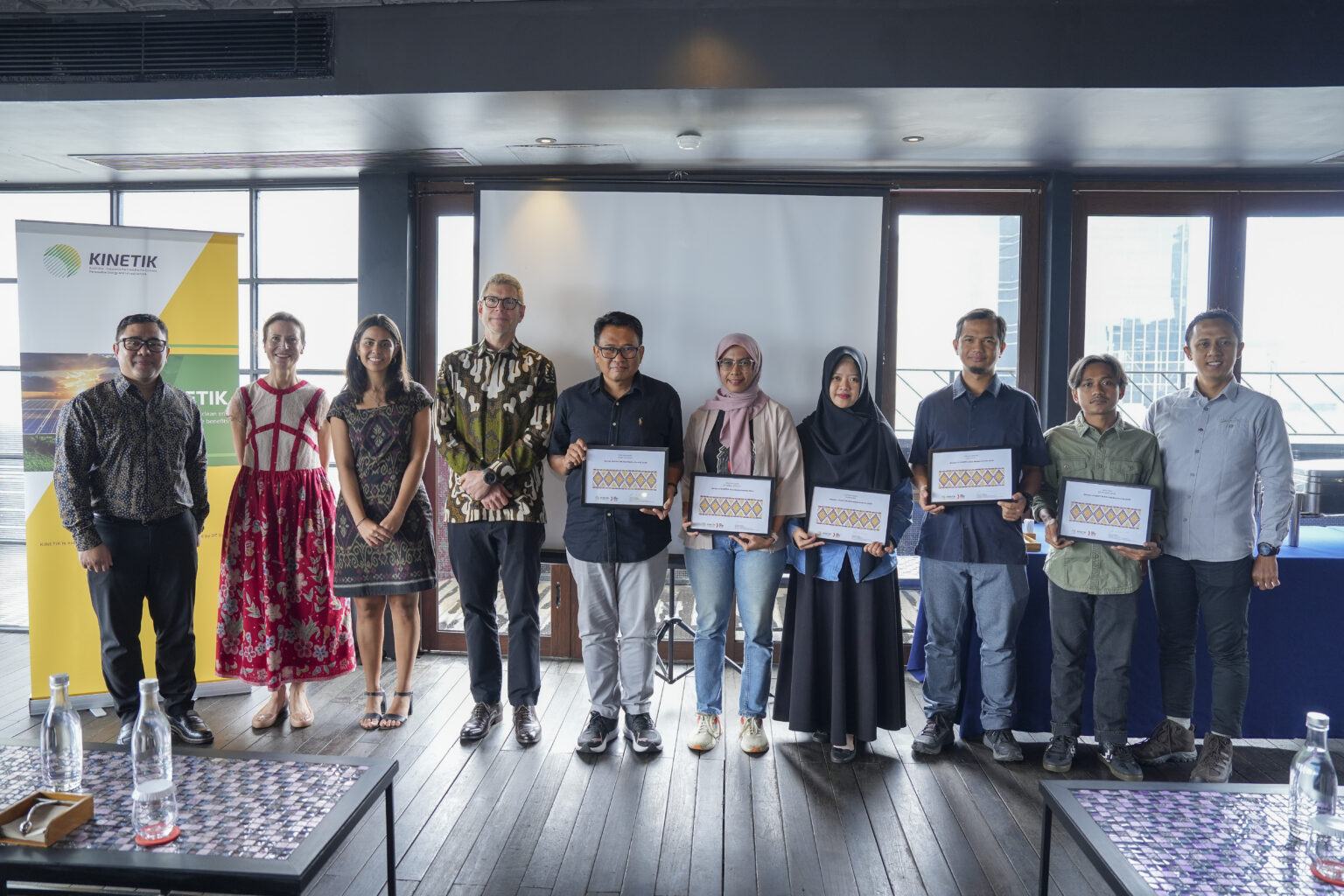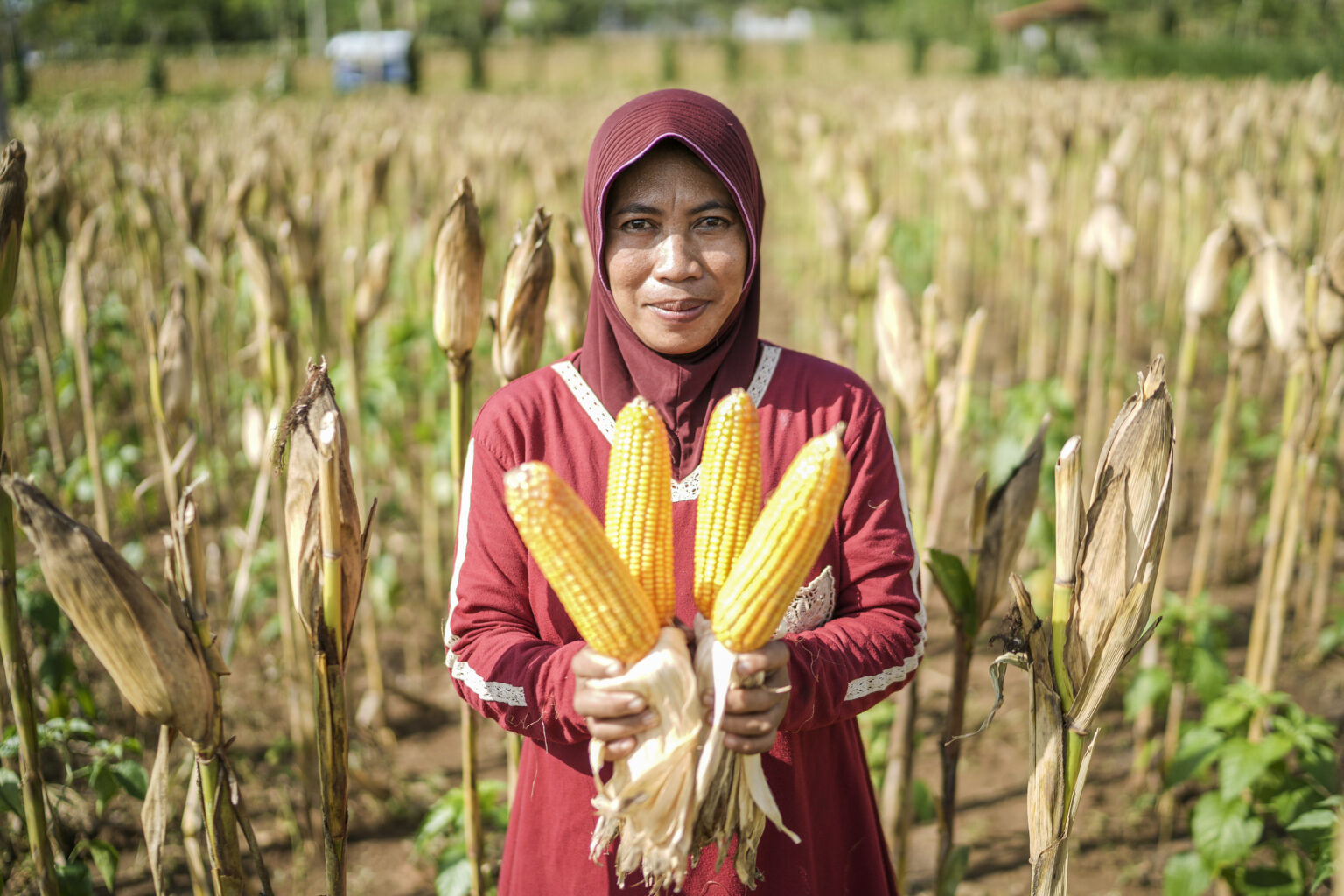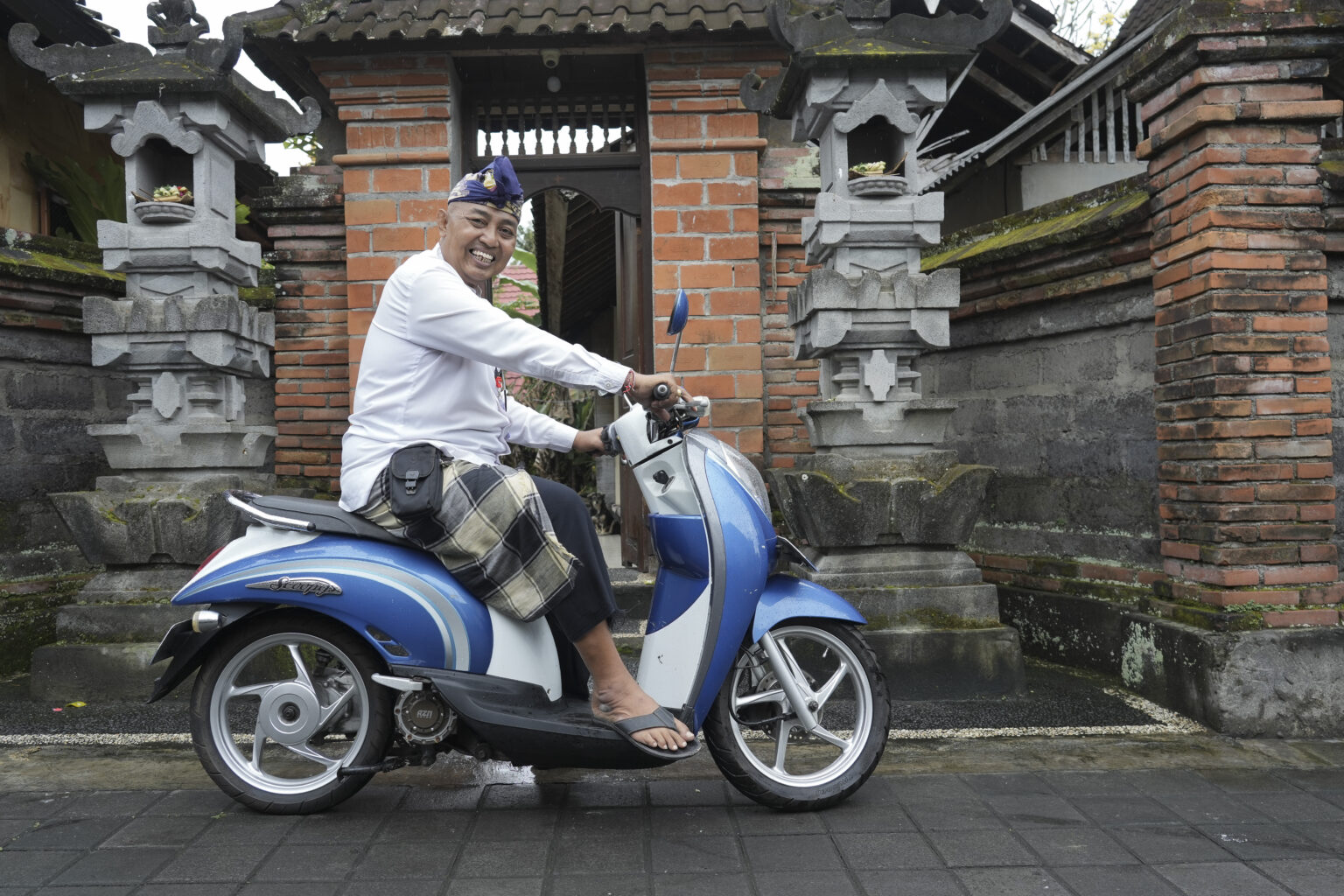
People with disabilities need to be included in climate action and the economic opportunities in the green economy, according to a panel held as part of Temu Inklusi, a national forum on disability inclusion in Indonesia.
The panel – Inclusive Climate Action and Green Entrepreneurship for People with Disabilities – was hosted by SIGAB Indonesia, a Disabled People’s Organisation, in partnership with KINETIK.
The panel discussion highlighted the importance of designing green innovation programs that are inclusive from the planning and designing process, including ensuring venues are accessible.
This widens access and opportunities for people with disabilities and ensures they are part of the conversation about how to integrate green solutions into existing business models.
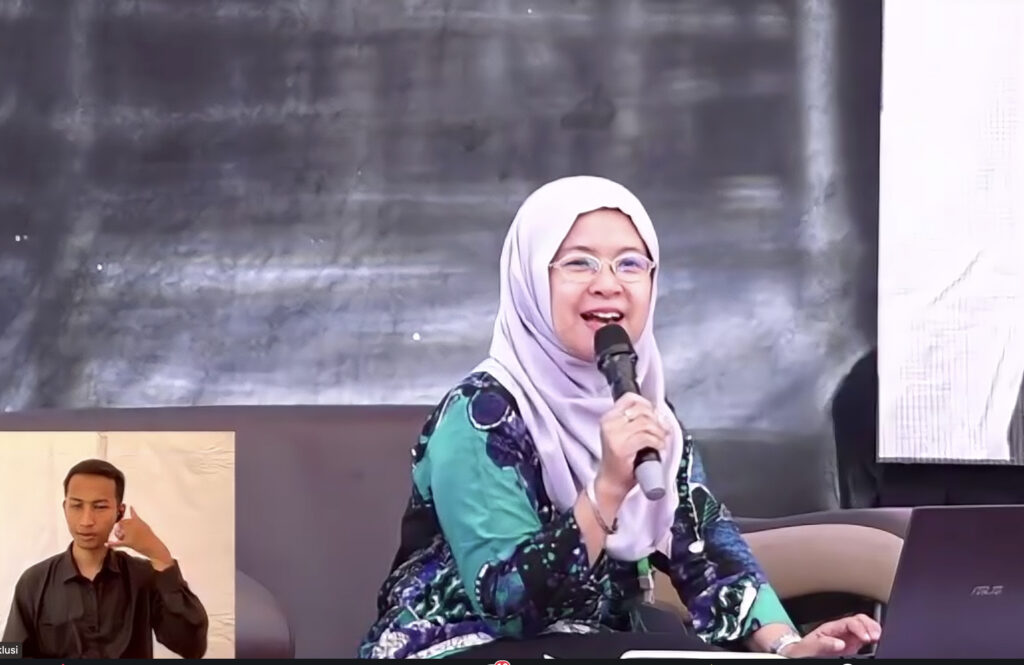
One of the panellists, Marini, a community leader from Ngudi Makmur Farmers’ Group in Gunungkidul, Yogyakarta described how they had included people with disabilities and older people in goat farming by building an accessible barn.
Under TERKAM (Integrated Goat Farming) project, goats are raised in the barn and their waste turned into organic fertiliser.
Ms Marini said every design decision, from the barn layout to the tools used, was made with accessibility in mind.
This demonstrated the commitment to embedding inclusion in the program from the very beginning.
One member of the farmer’s group, who uses a wheelchair, now helps package fertilizer and can fully participate in the production cycle.

TERKAM has produced more than 2.5 tons of compost and 700 litres of liquid fertilizer, which has been distributed to more than 128 households.
This enables people with disabilities, older farmers and women to grow vegetables at home.
“It may seem small, but it has transformed how we survive the dry season,” Ms Marini said.
Another panellist – Triyono – is the founder and CEO of Difabike, a Yogyakarta-based transport service for people with disabilities.
Many of his customers were once fully mobile, until a stroke or injury changed their lives. Difabike gives them independence again.
The company, which also employs drivers with disabilities, provides modified vehicles with ramps, wide doors and side cars to accommodate wheelchairs.
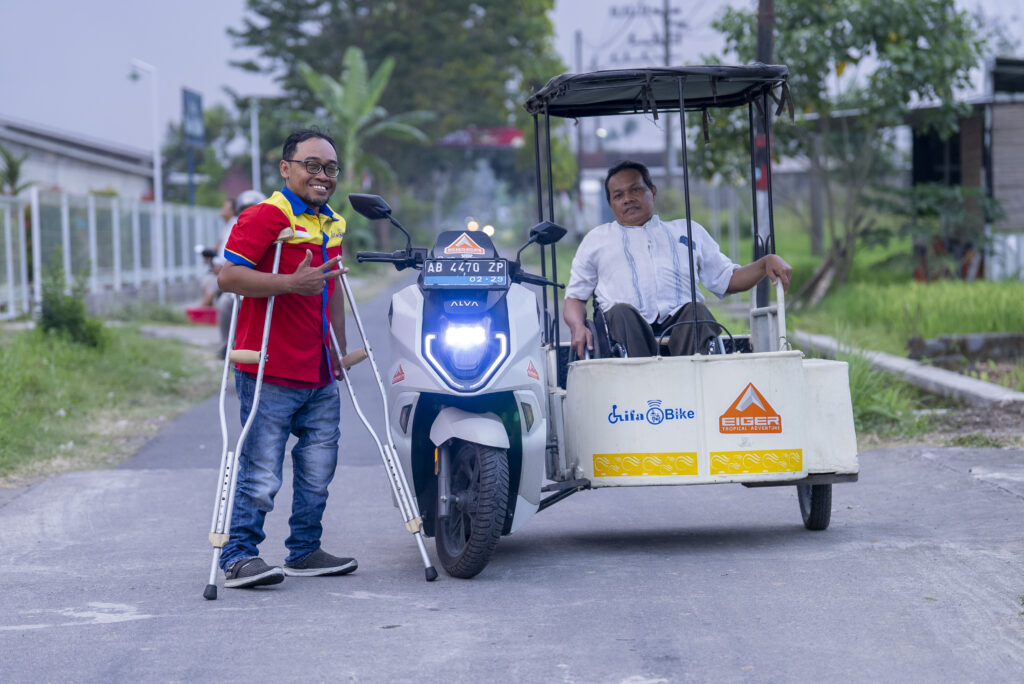
Mr Triyono told the panel that Difabike was shifting from petrol-fuelled vehicles to electric motorcycles designed for people with disabilities.
“We began converting our bikes to electric,” Mr Triyono said. “Not only are they quieter and more sustainable, but the maintenance is also far cheaper.”
But Mr Triyono stressed the need for broader support if Difabike is to grow further.
“We want this to be a movement, not just a business,” Mr Triyono said.
Panellist Diyanto Imam is the Director of New Energy Nexus Indonesia, a non-profit organisation that supports clean energy startups.
Mr Diyanto said New Energy Nexus was launching business incubators for people with disabilities and recruiting mentors who understand disability inclusion.
“We are still learning, but our goal is to become a disability-transformative organization,” he told the panel.
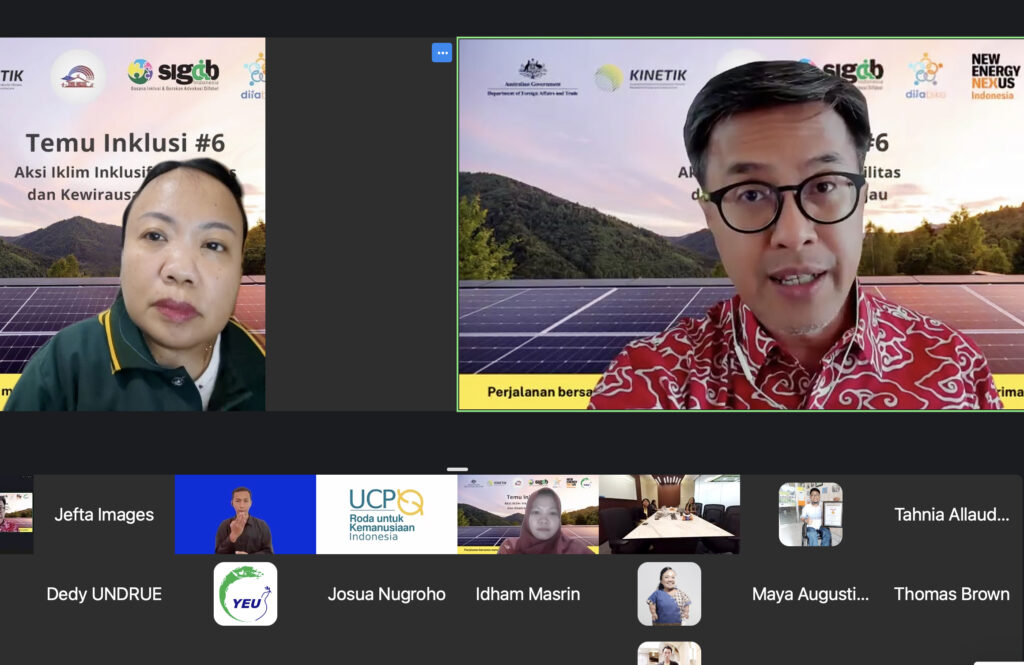
Mr Diyanto said New Energy Nexus is helping people with disabilities identify local climate problems and then working with them on solutions that could be scaled to other regions.
“Local solutions for local challenges,” he said.
The panel was moderated by SIGAB program officer Ninik Heca and KINETIK GEDSI Coordinator Anggiasari Pujiarti.
The discussion was closed with a strong message from Ms Anggiasari.
“Starting the conversation on inclusion in business means creating pathways to involve more actors, expand opportunities, and strengthen the business ecosystem for communities, including people with disabilities and women,” she said.
“This also means providing more information, access, and open space to spark ideas, address challenges, and contribute to building a more inclusive, sustainable, and green entrepreneurship environment.”

